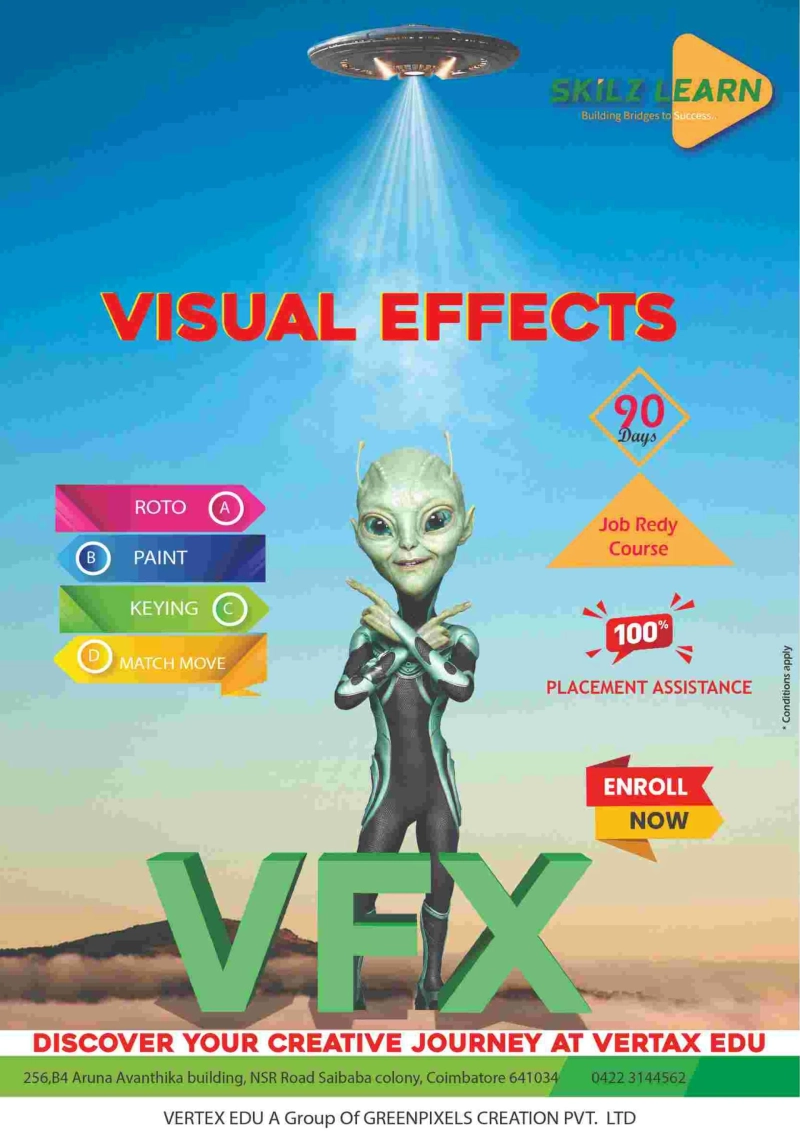The world of VFX (Visual Effects) is a captivating one, breathing life into fantastical creatures, crafting awe-inspiring environments, and pushing the boundaries of visual storytelling. But how do you break into this exciting field and land your dream VFX job?
This comprehensive guide equips you with the essential skills every VFX artist needs to stand out from the crowd:
1. Mastering the VFX Pipeline:
Understanding the entire VFX process, from pre-production concept art to final compositing, is crucial.
- 3D Modeling & Animation: Learn how to create and animate stunning 3D assets using industry-standard software like Maya or Houdini.
- Texturing & Shading: Breathe life into your 3D models with realistic textures and lighting techniques.
- VFX Compositing: Seamlessly integrate CGI elements with live-action footage, creating a cohesive visual experience.
- Green Screen & Chroma Keying: Master the art of keying out backgrounds for compositing visual effects.
2. Software Proficiency: Your VFX Toolkit
Familiarity with industry-standard software is essential:
- 3D Modeling & Animation Software: Maya, Houdini, Blender (open-source option)
- Texturing & Shading Software: Mari, Substance Painter
- VFX Compositing Software: Nuke, After Effects
- Additional Software: ZBrush for sculpting, Adobe Photoshop for image editing
3. Artistic & Technical Blend:
VFX is where art meets technology. Hone these key skills:
- Strong Artistic Foundation: Understanding composition, color theory, and lighting principles is essential.
- Technical Skills: Mastering software functionality and applying technical knowledge to achieve desired visual effects.
- Problem-Solving & Creativity: Think outside the box and find innovative solutions to bring visual concepts to life.
4. Communication & Collaboration:
VFX is a collaborative effort. Develop these skills:
- Clear Communication: Effectively convey your ideas and collaborate with other VFX artists, directors, and producers.
- Teamwork: Working seamlessly within a team environment is crucial for project success.
- Attention to Detail: Meticulous attention to detail ensures high-quality VFX work.
5. Building Your VFX Portfolio:
A strong portfolio showcases your skills and creative vision.
- Showcase Your Best Work: Include relevant projects that demonstrate your VFX capabilities.
- Variety is Key: Present a diverse range of work to illustrate your skills in different areas of VFX.
- Tailor Your Portfolio: Research potential employers and tailor your portfolio to align with their specific needs.
Ready to Take Flight:
By mastering these essential skills and building a compelling portfolio, you\'ll be well-equipped to impress potential employers and land your dream VFX job. Remember, the VFX journey is a continuous evolution. Embrace the learning curve, constantly explore new techniques, and keep pushing the boundaries of your creativity. The world of VFX awaits your artistic vision!



